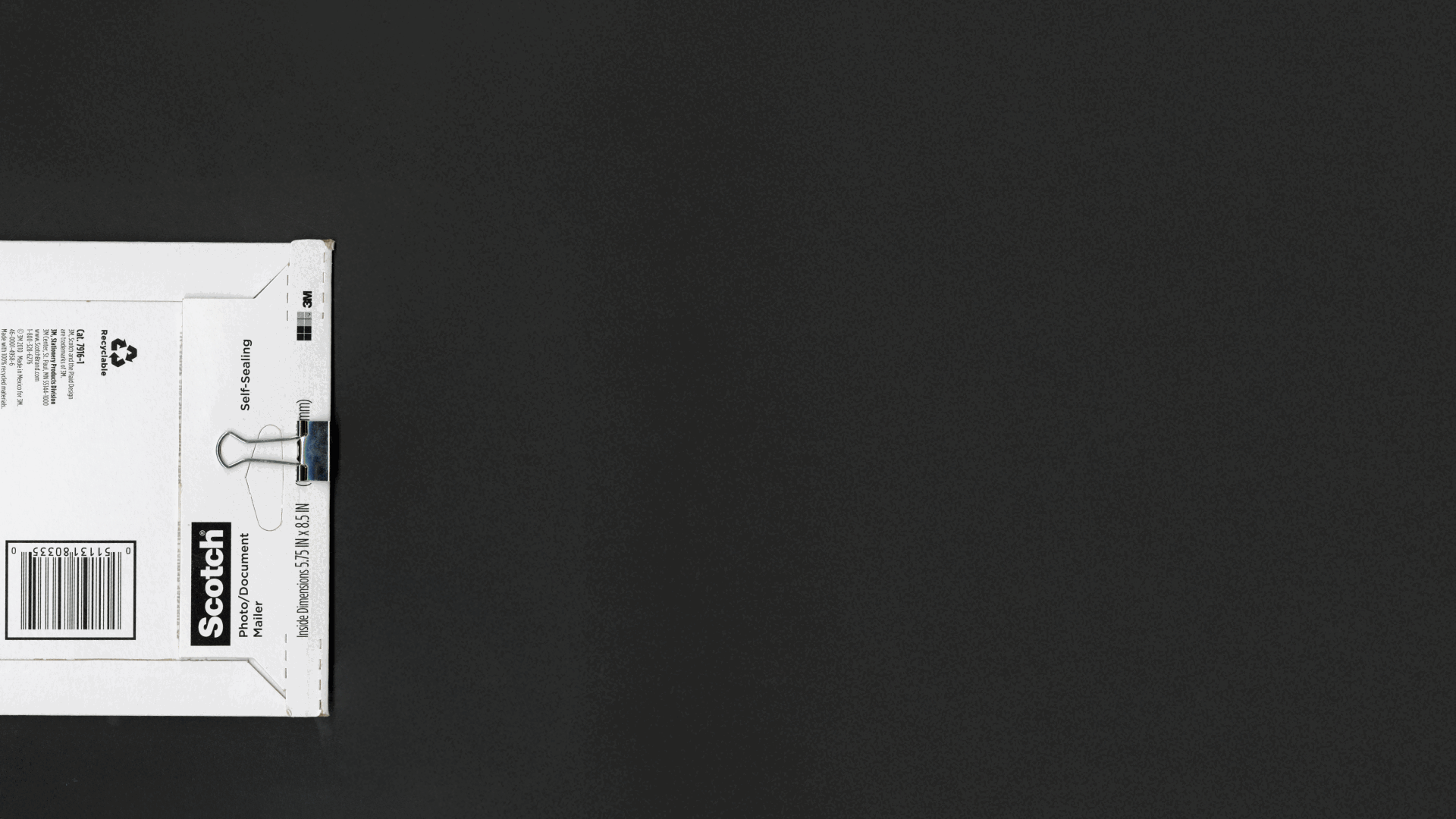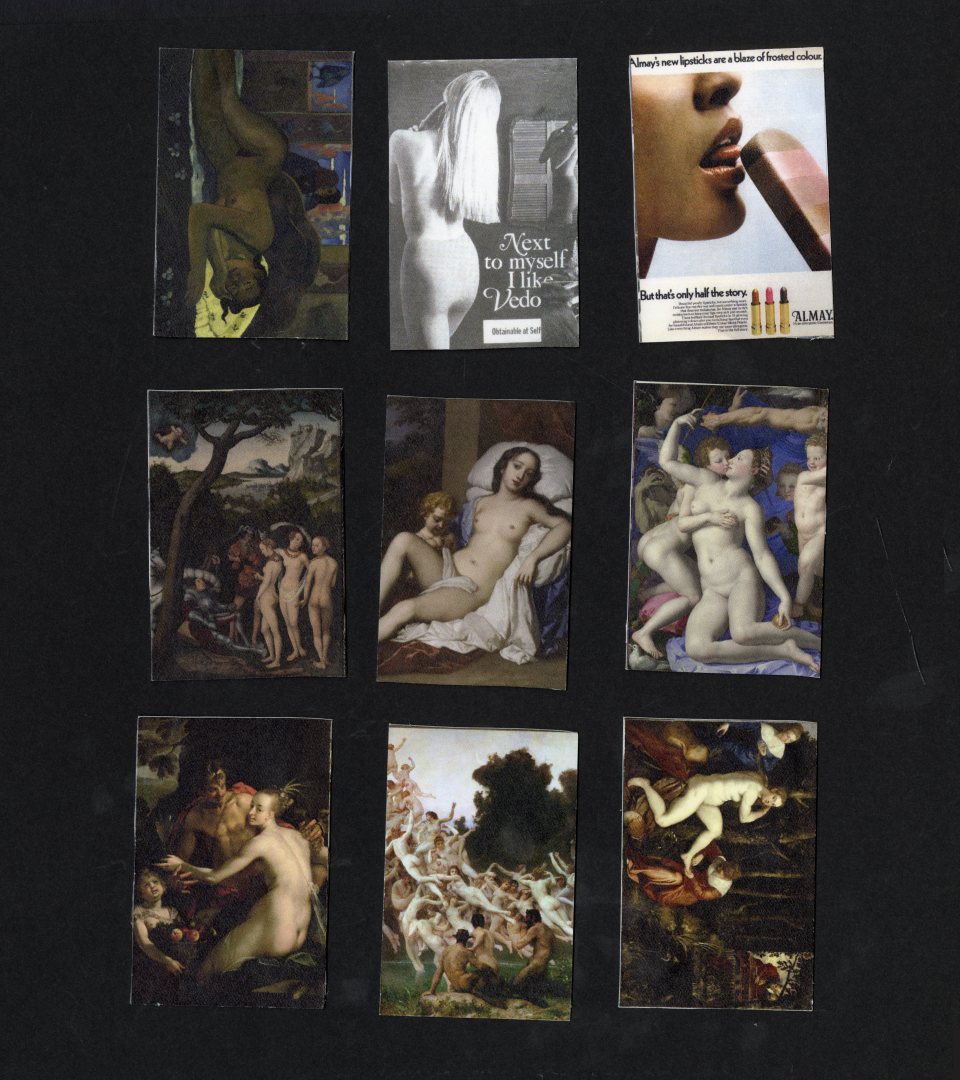My portfolio has not yet been designed for mobile. In the mean time, please visit my portfolio on desktop(or resize your browser)
Lucy Pham is a designer and MFA Graphic Design candidate at the Rhode Island School of Design.
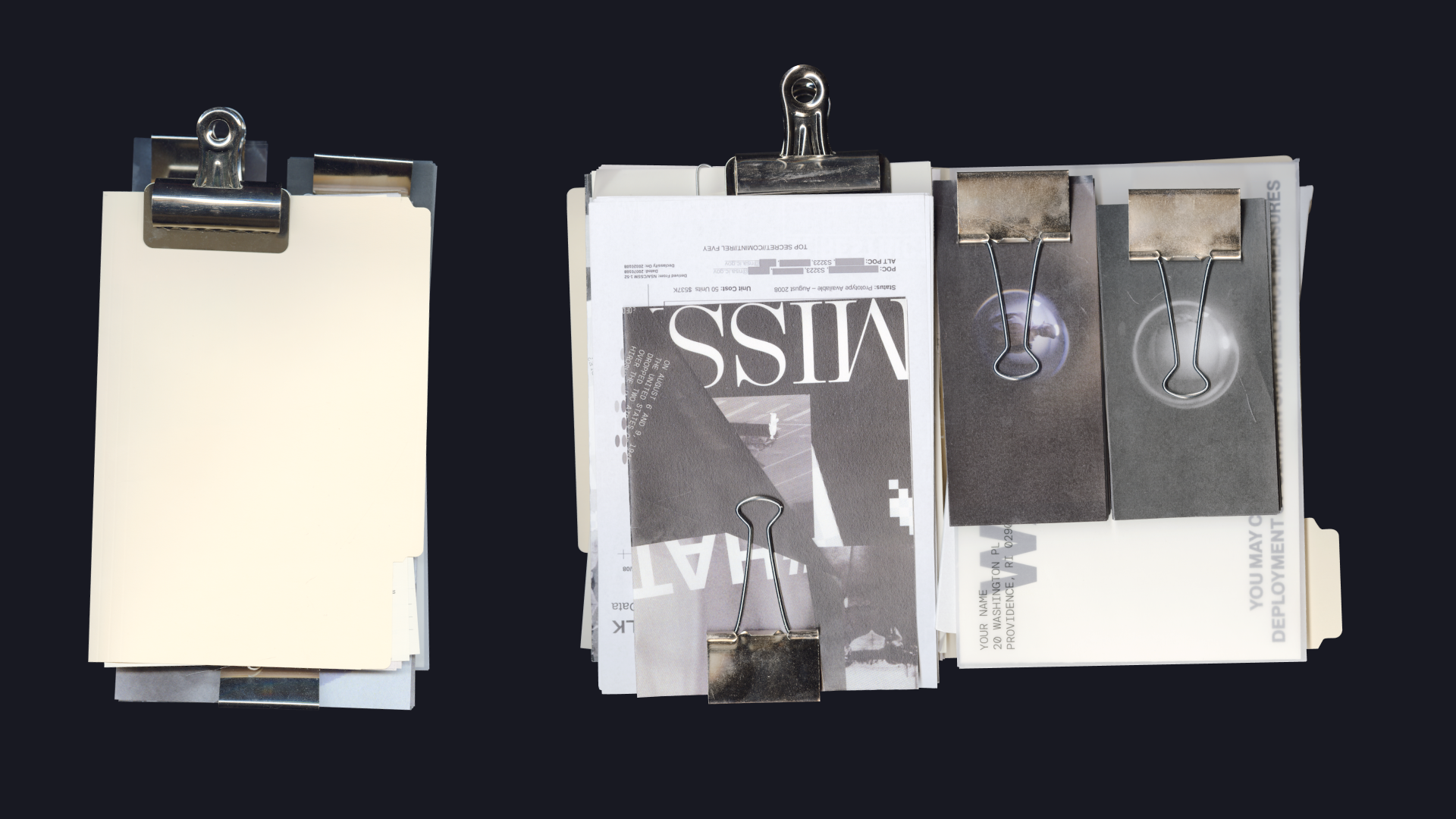
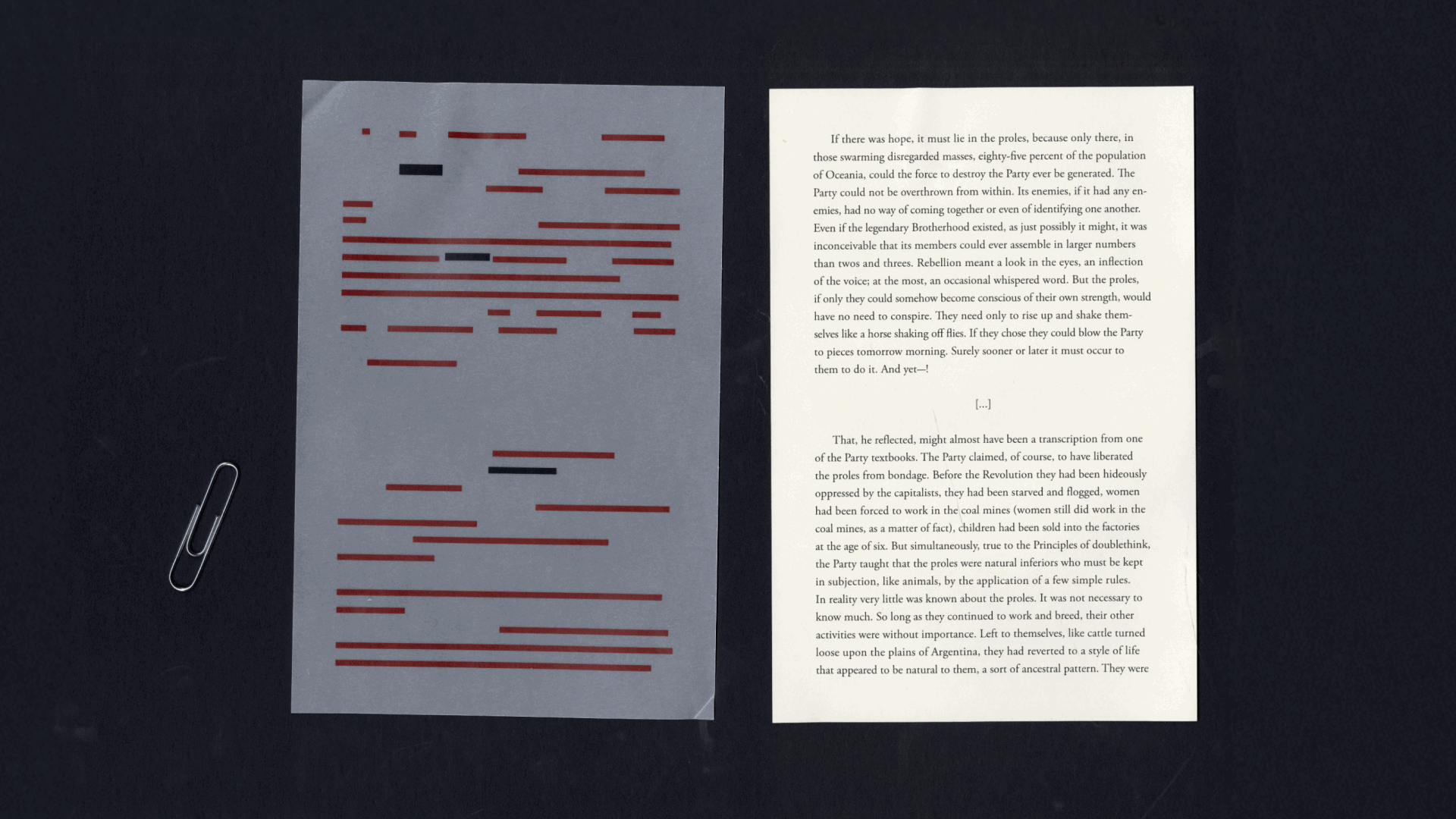
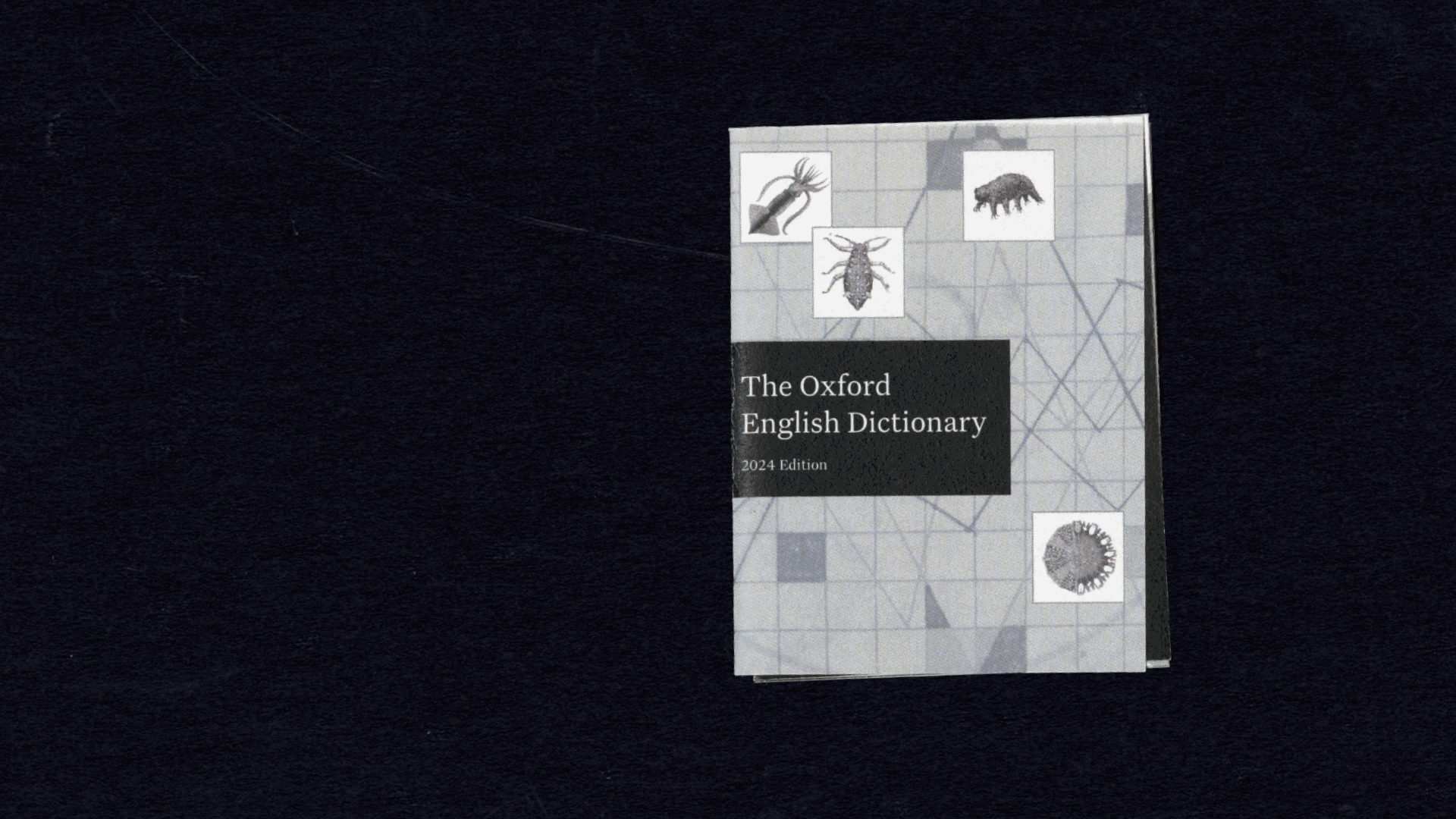
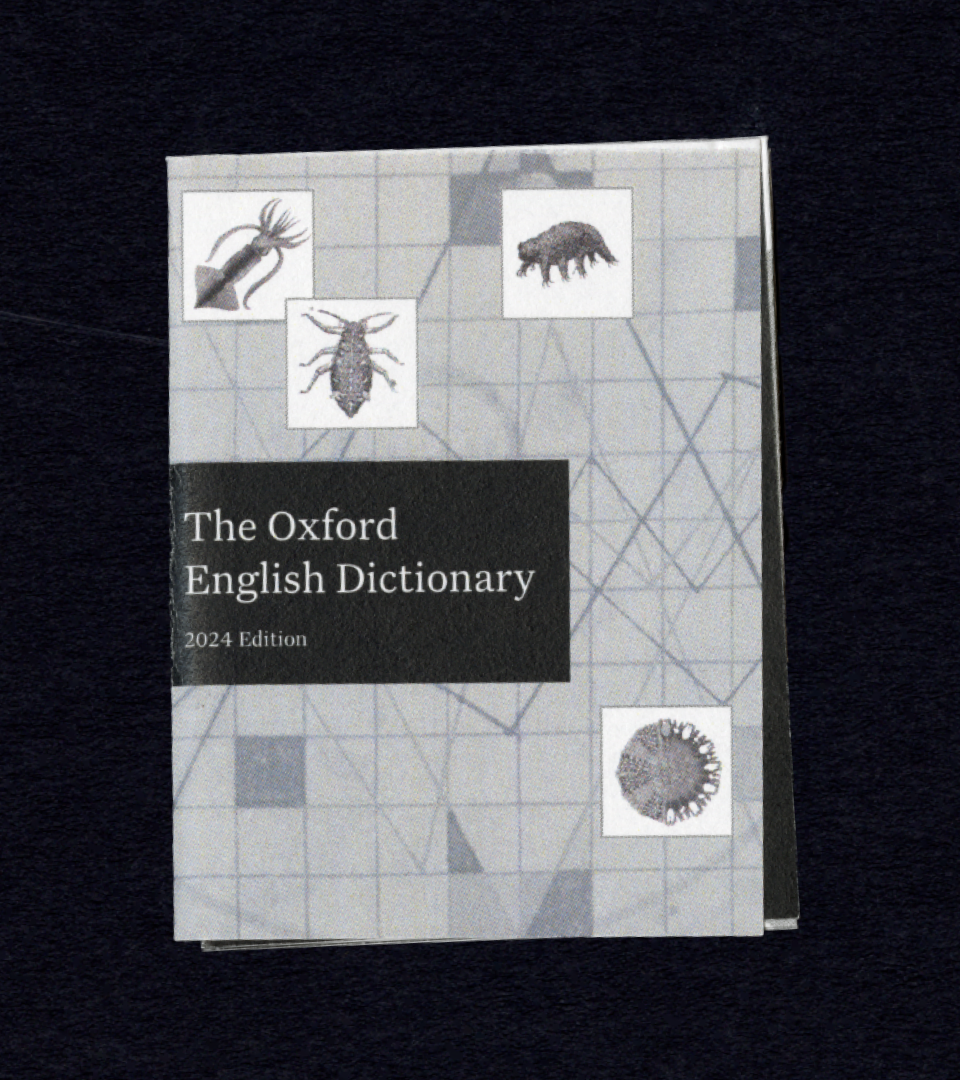
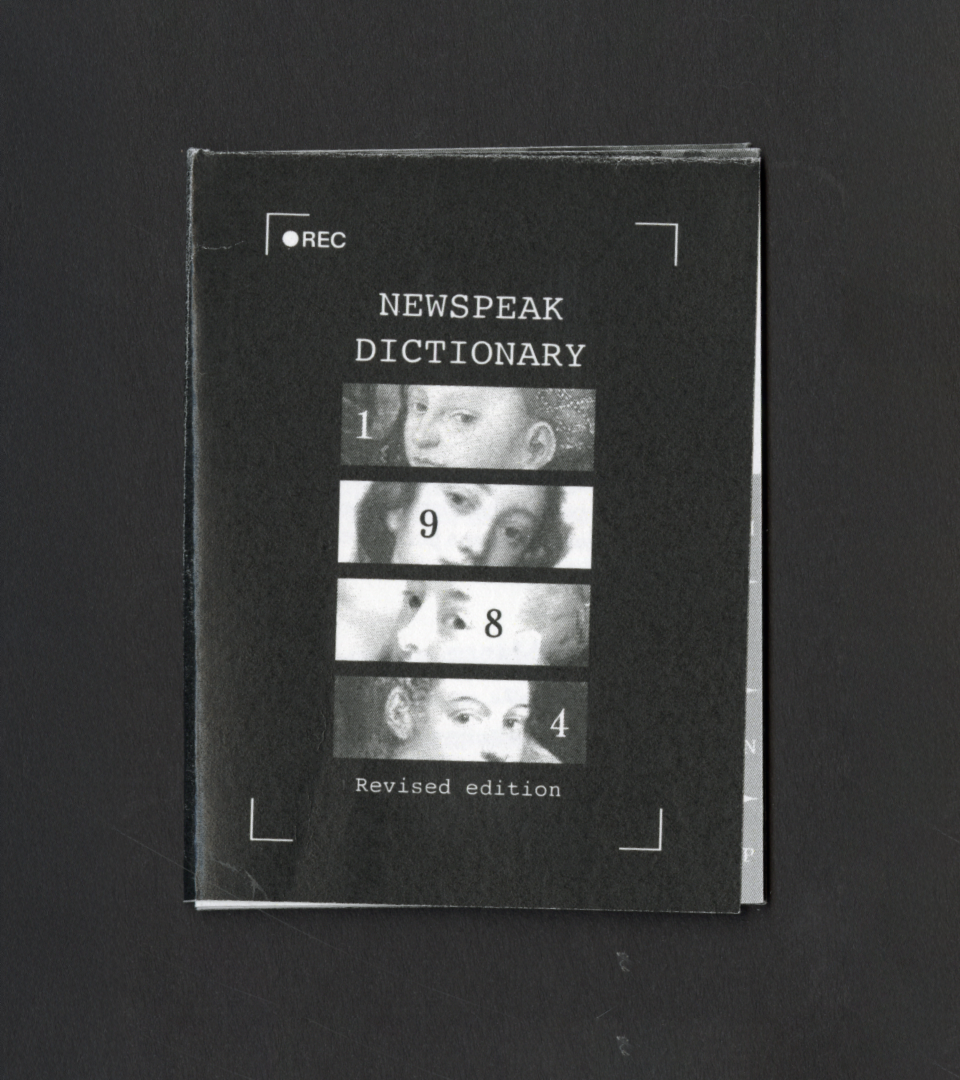
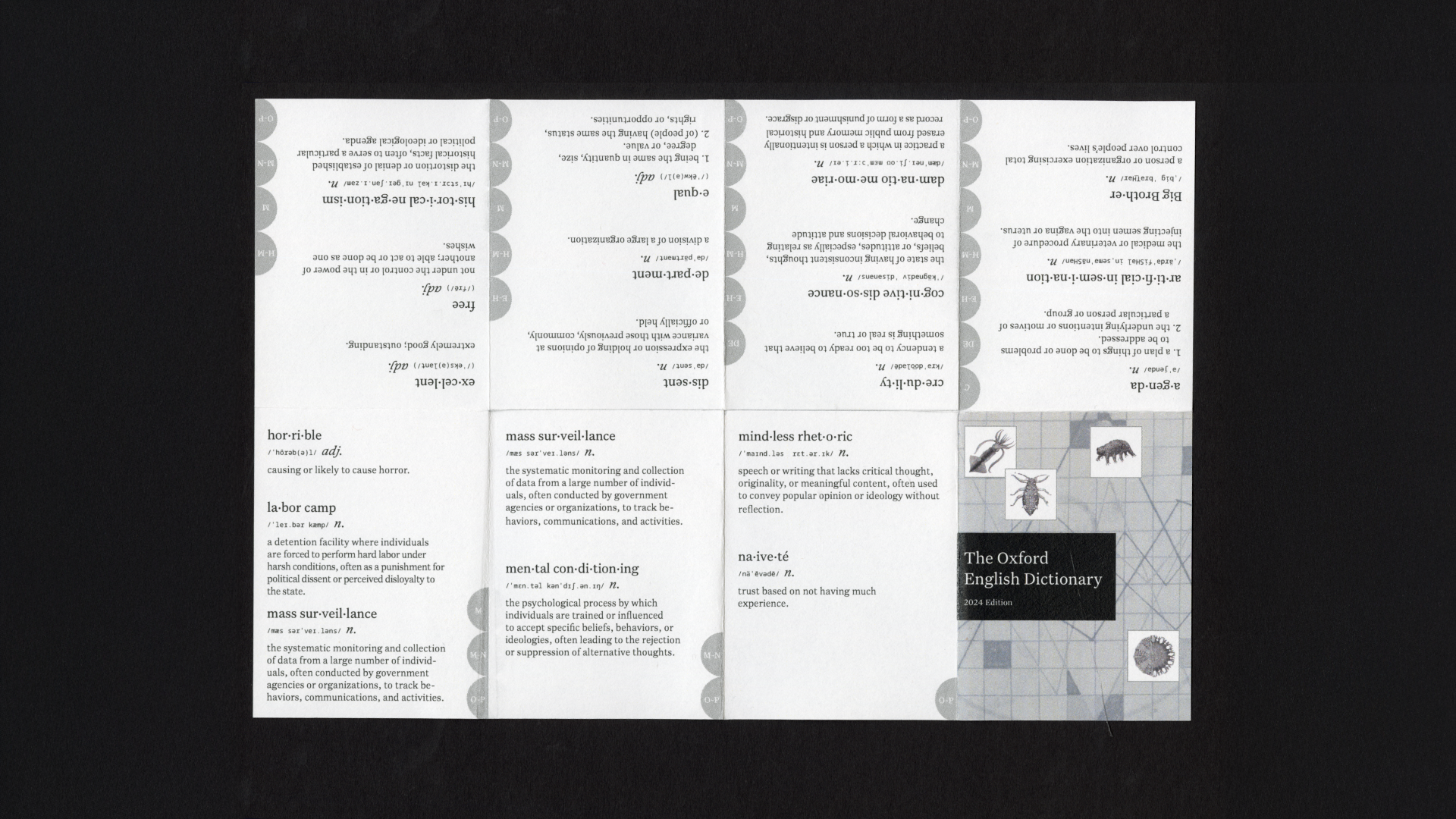
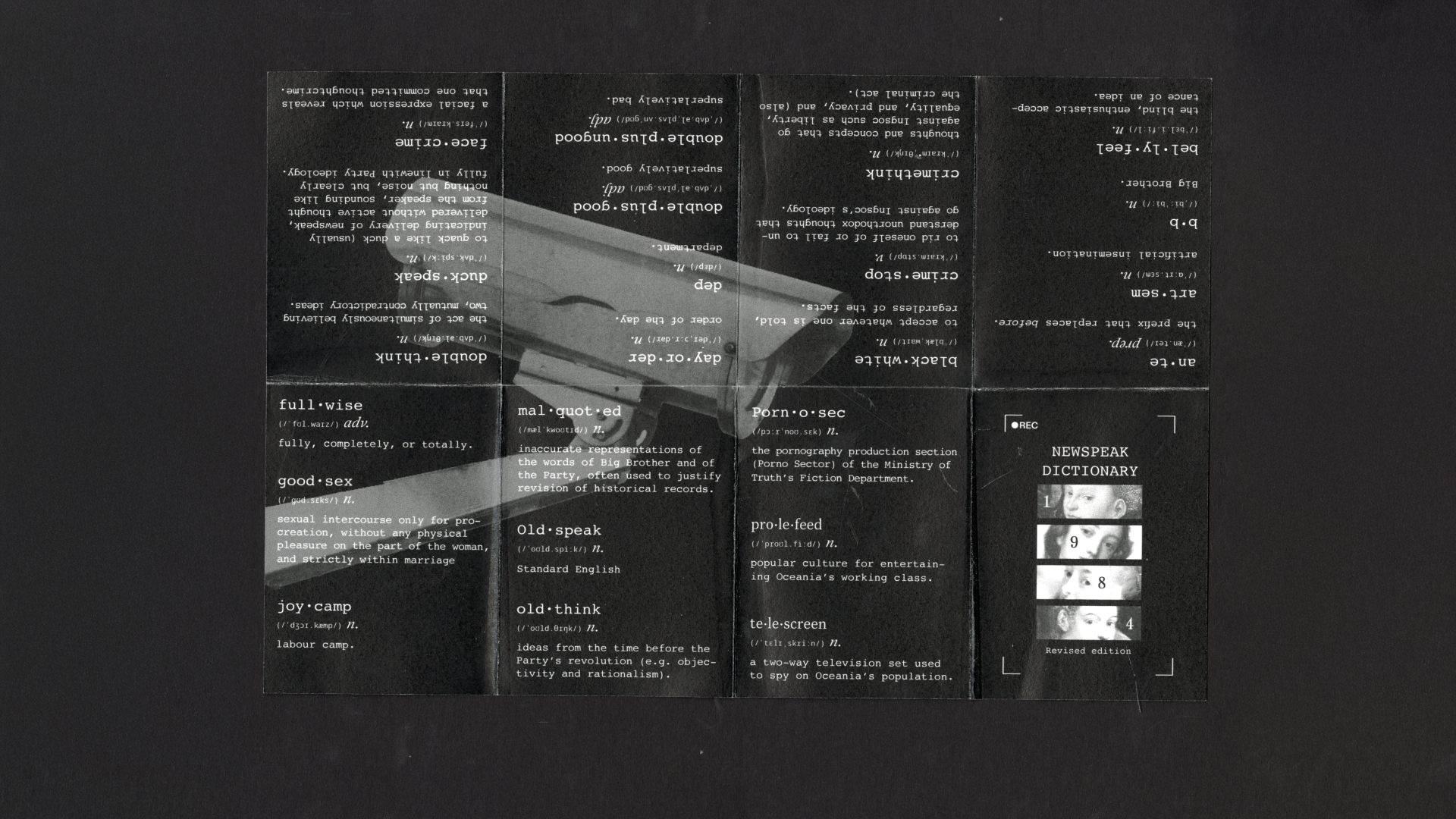
In 1984, the main character Winston Smith works in the Ministry of Truth's Records Department where he is responsible for editing existing documents so that they align with the Party's agenda. For instance, he edits articles in The Times newspaper.
I created a two-sided newspaper. One side contains original headlines from The New York Times and the other side contains edited headlines (written in "Newspeak") that are meant to reflect a specific, possibly nefarious agenda.
The previous dictionary could be used to decipher some of the meanings.
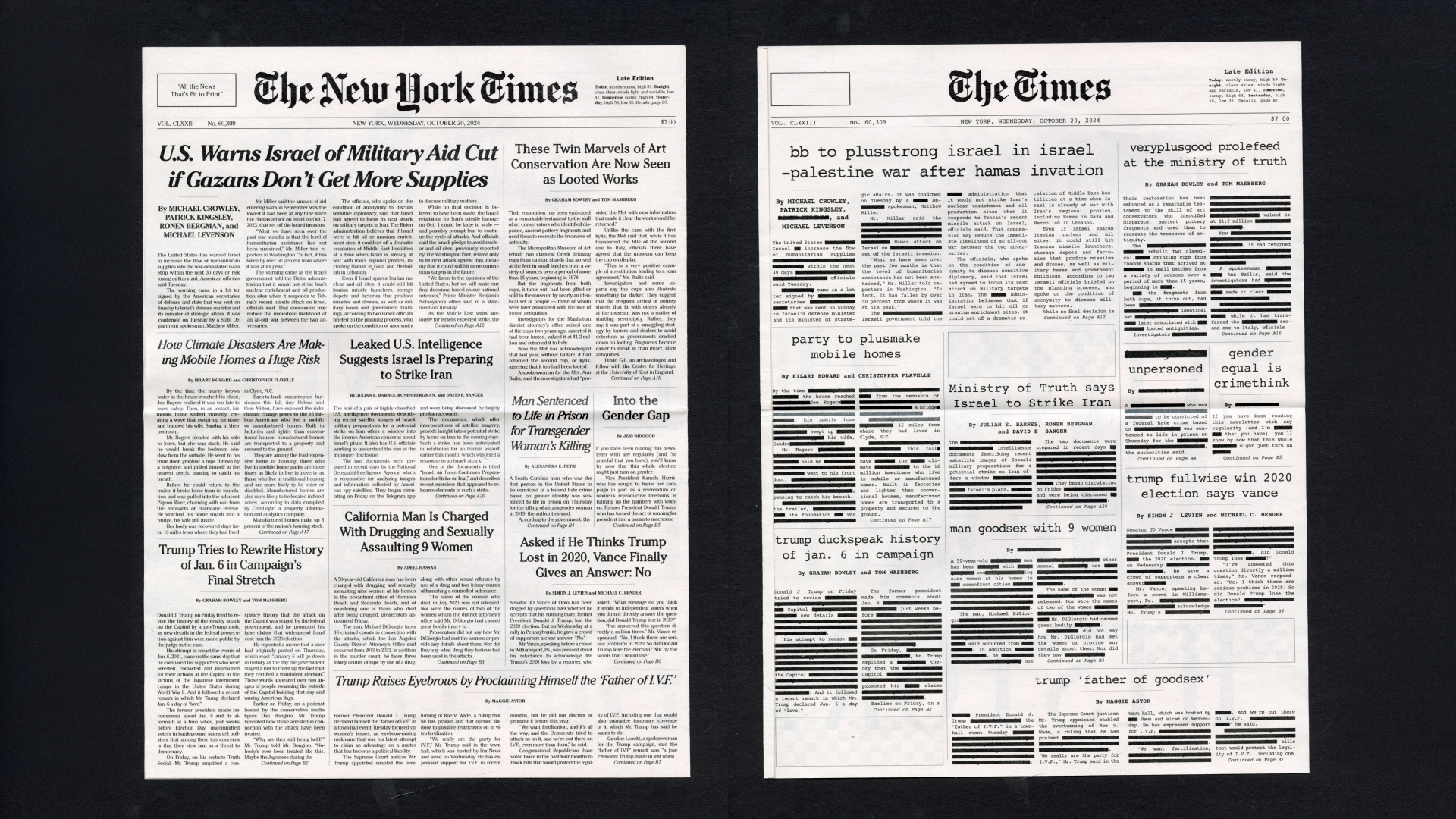
As mentioned prior, Winston has to rewrite headlines. After he is done editing historical documents, he has to dispose of the original document in a chute called a "memory hole." This perforated sheet contains instructions at the top which tell the user to rewrite these headlines and then dispose of the headline after they have rewritten it on the back of the sheet.
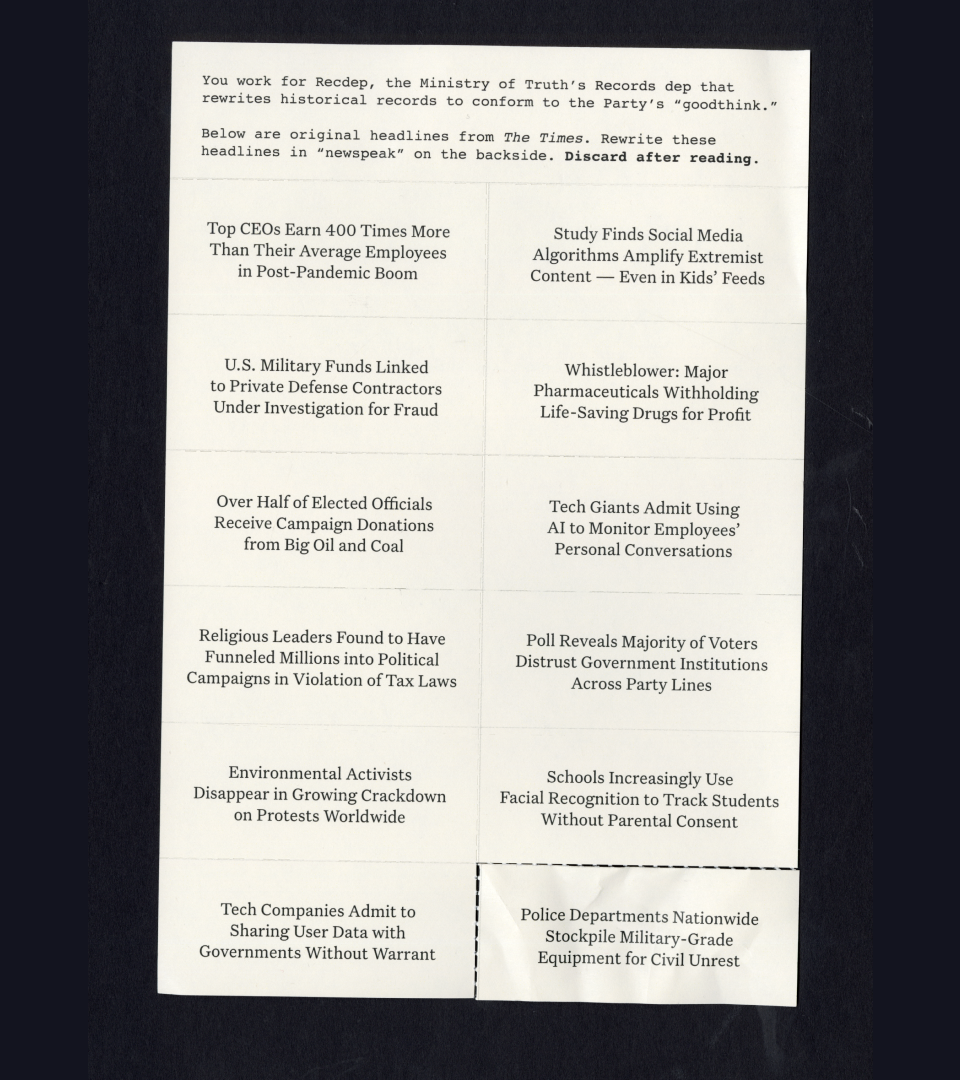
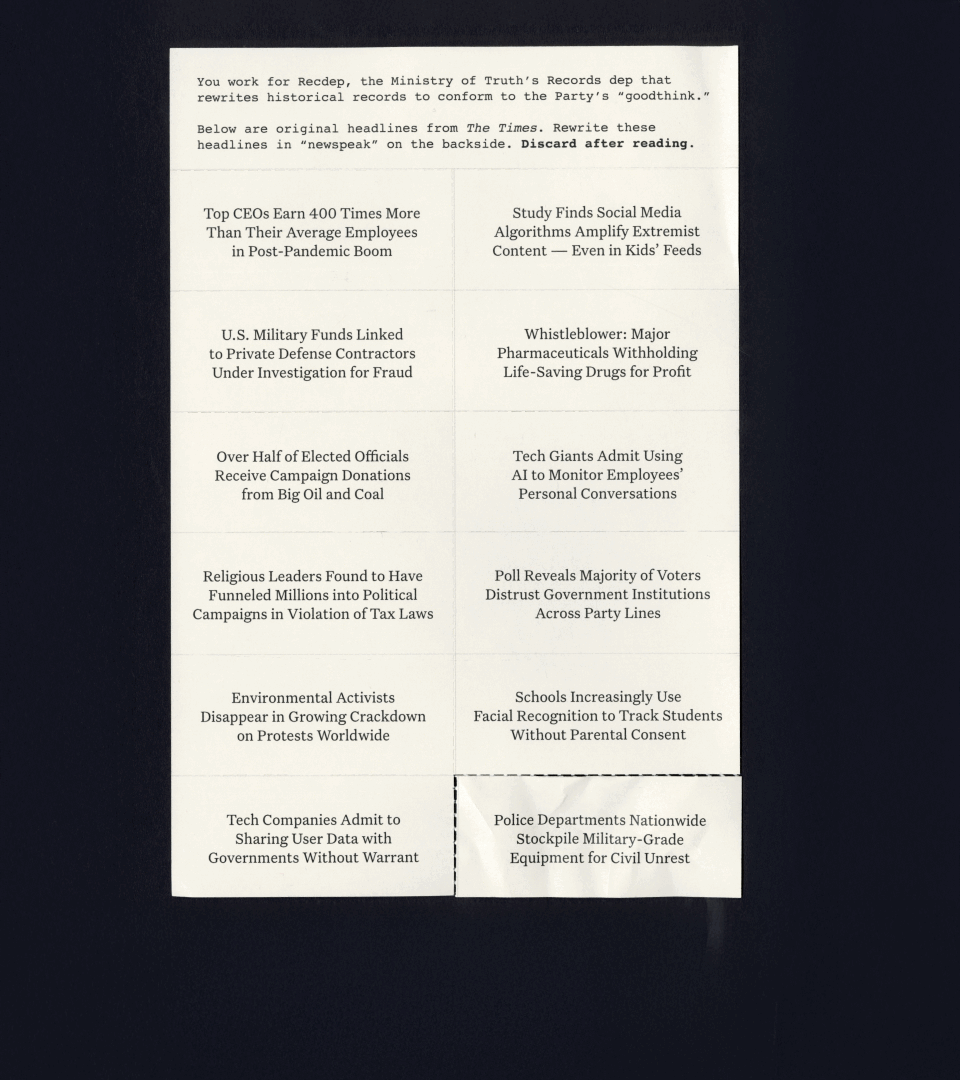
I made four posters that might exist in the world of 1984. However, only two posters have a front and back side. The main poster is a "missing persons" poster, and the back talks about actual people or events who were supposed to be erased from history.
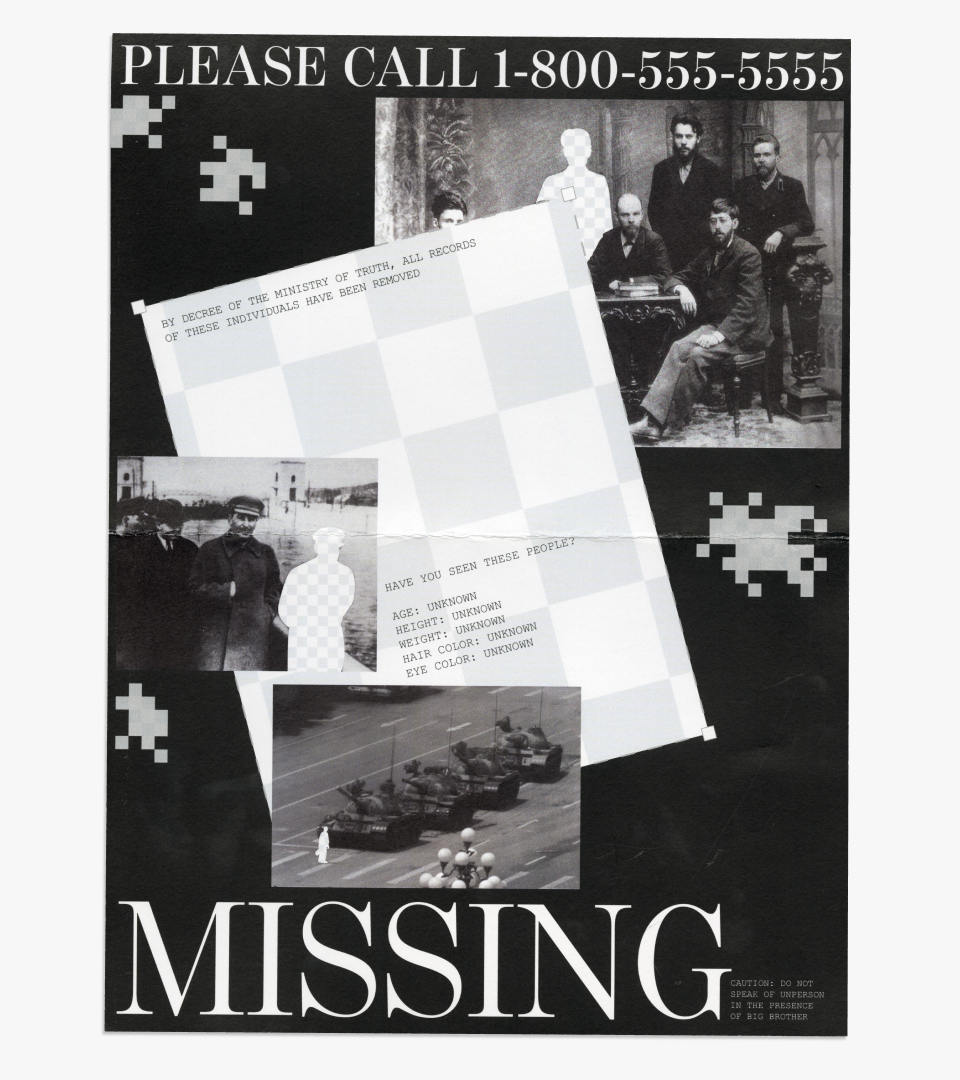
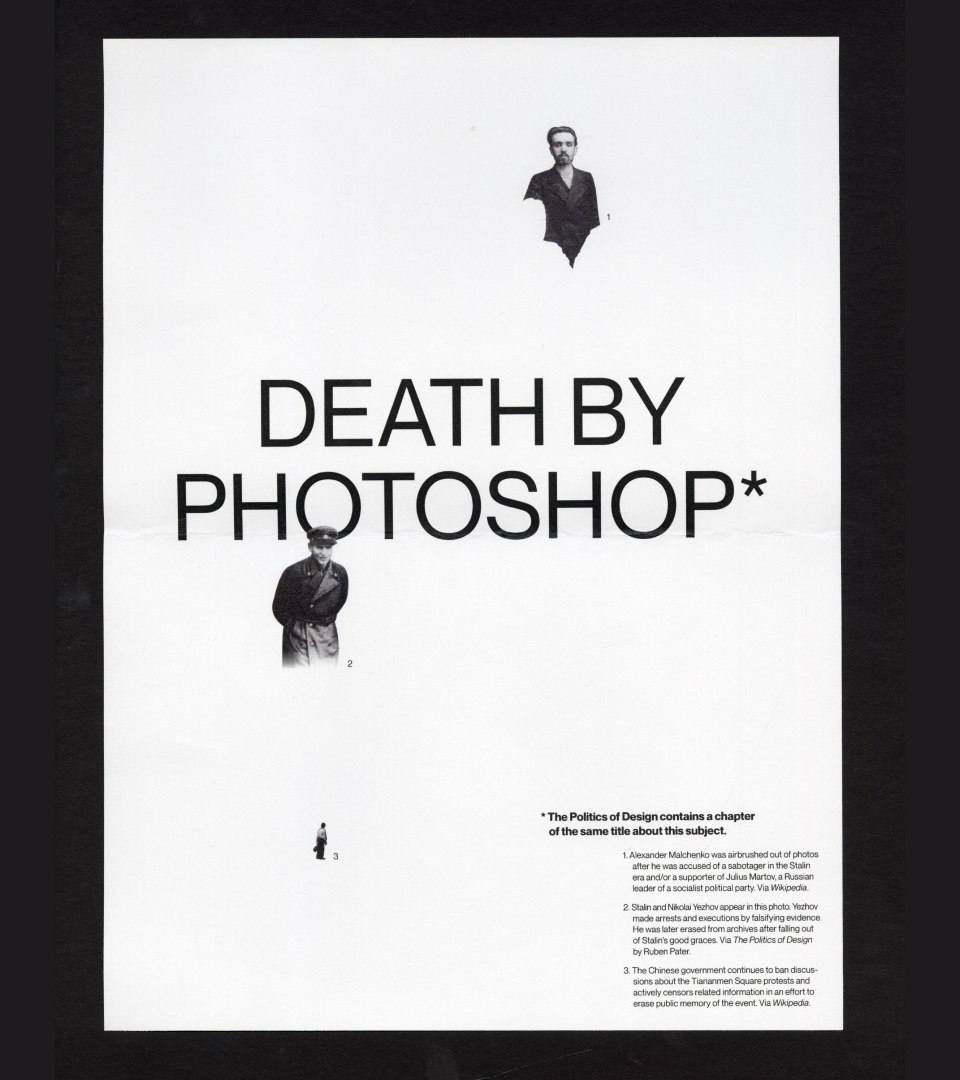
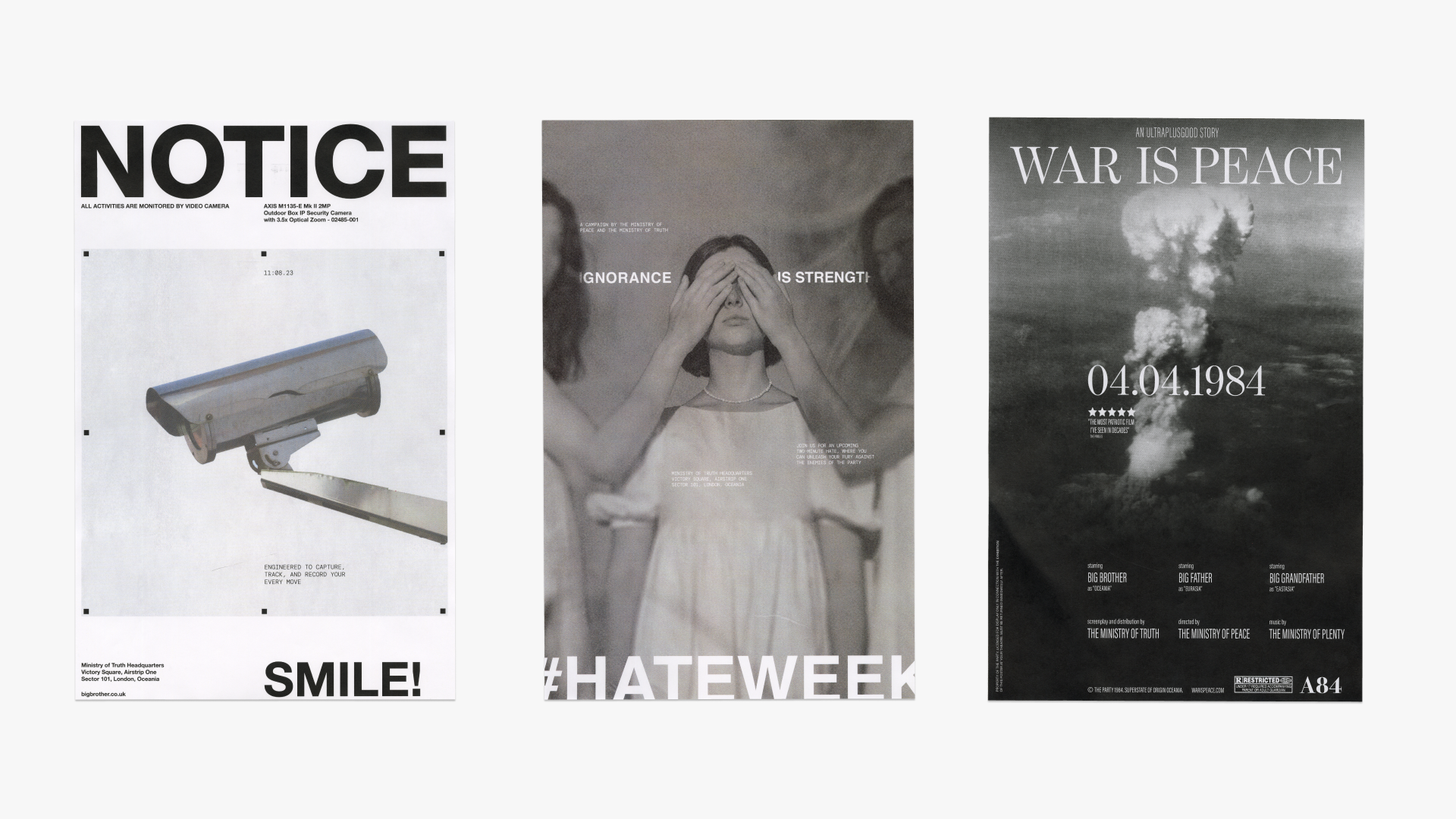
Another poster I made was a movie poster for a fictional propaganda film created by the Party. In the novel, the phrase "War is Peace" is used which encourages war as a means of maintaining power. This poster shows an image from the atomic bombing of Hiroshima in 1945, an event which was justified at the time but have since raised moral/ethical debates over the attacks. The back of the poster contains a short description clarifying the use of the image in the poster (as I obviously do not believe in war). It is meant to be satirical.
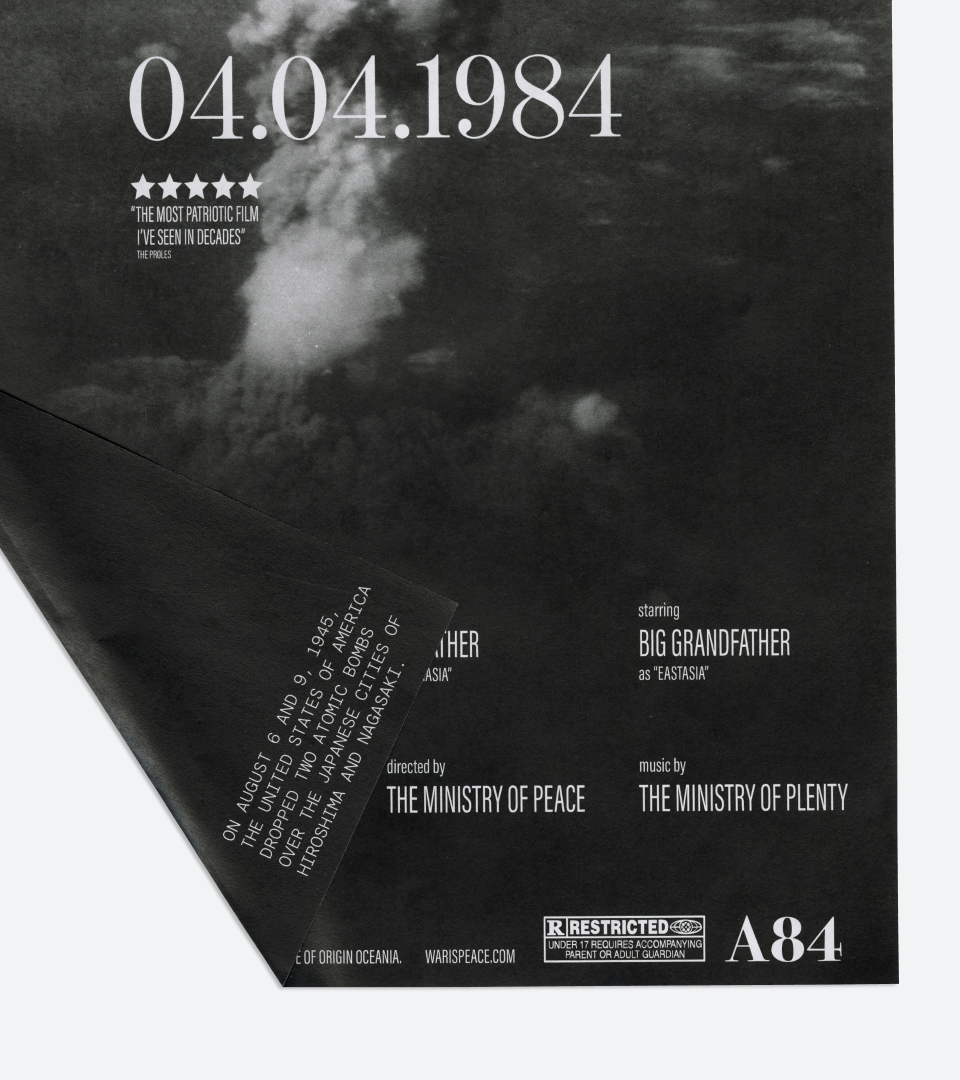
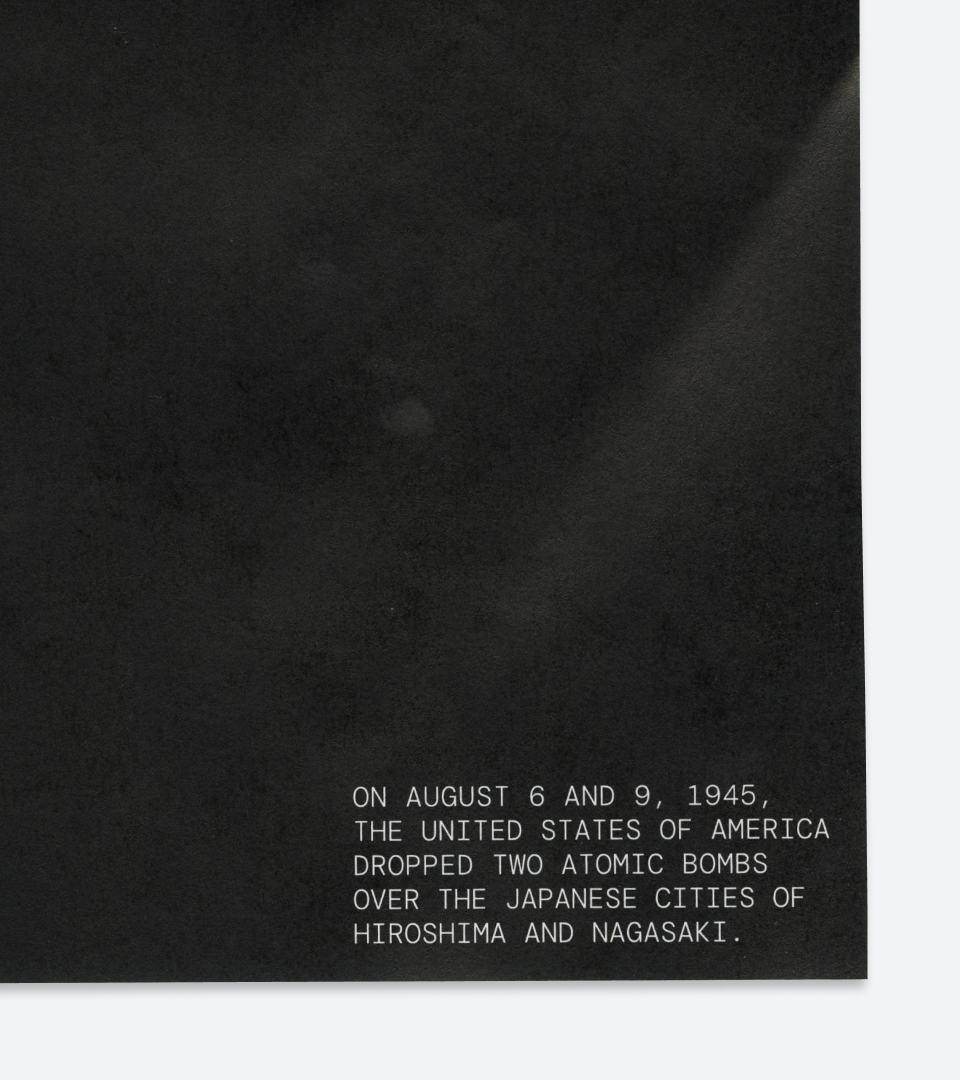
In 1984, people who commit thought crimes are "unpersonned."
One side of this plate is a fictional criminal profile for whistleblower Edward Snowden who exposed surveillance tactics by the National Security Agency (NSA) and other intelligence agencies. The otherside of the plate is a fictional profile for the artist Sophie Calle, whose work has sometimes dealt with the topic of surveillance. The faux "polaroid" images are reproductions of her conceptual work Suite Vénitienn (1980) in which she followed and secretly took photos of a stranger.
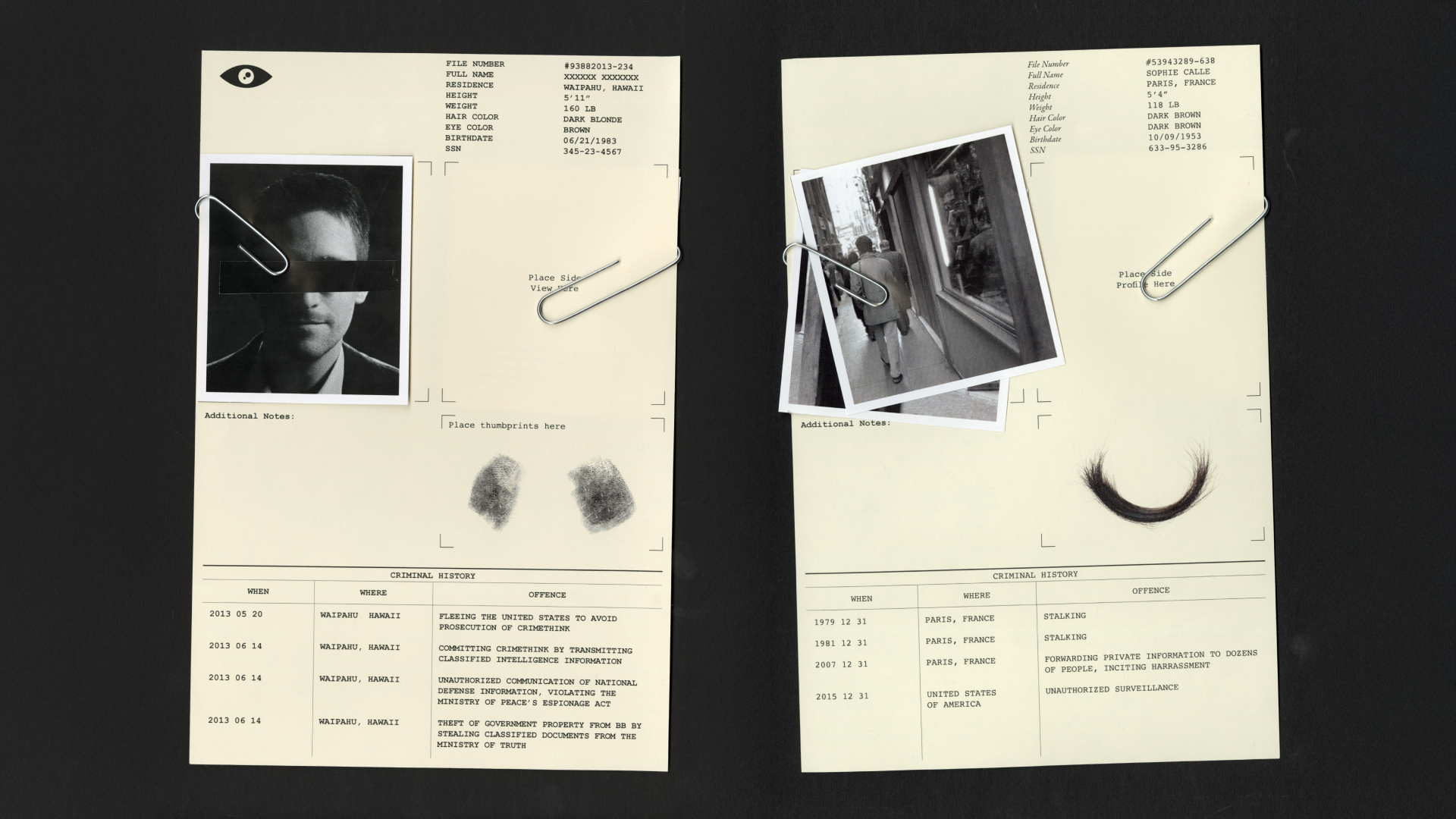
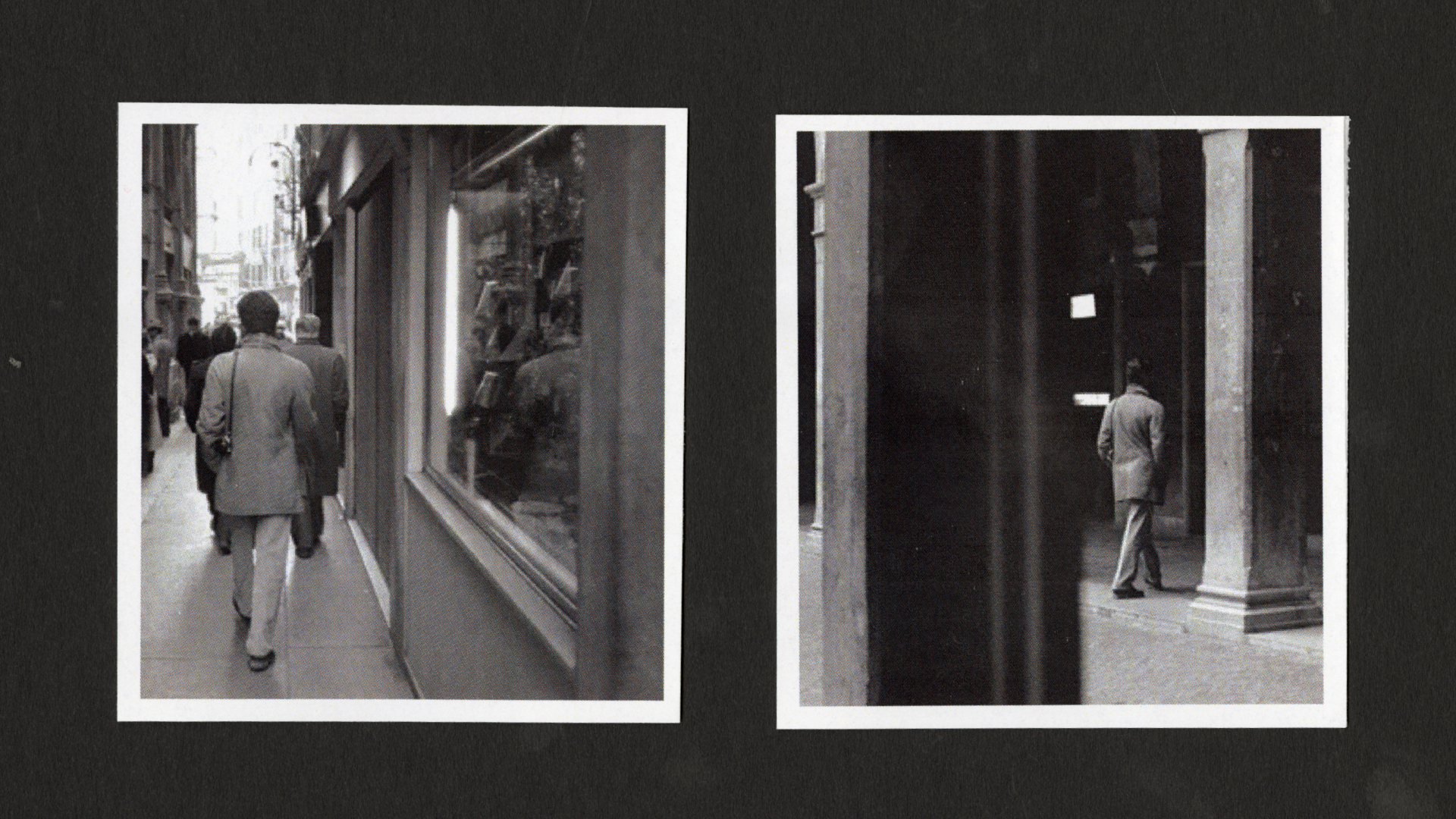
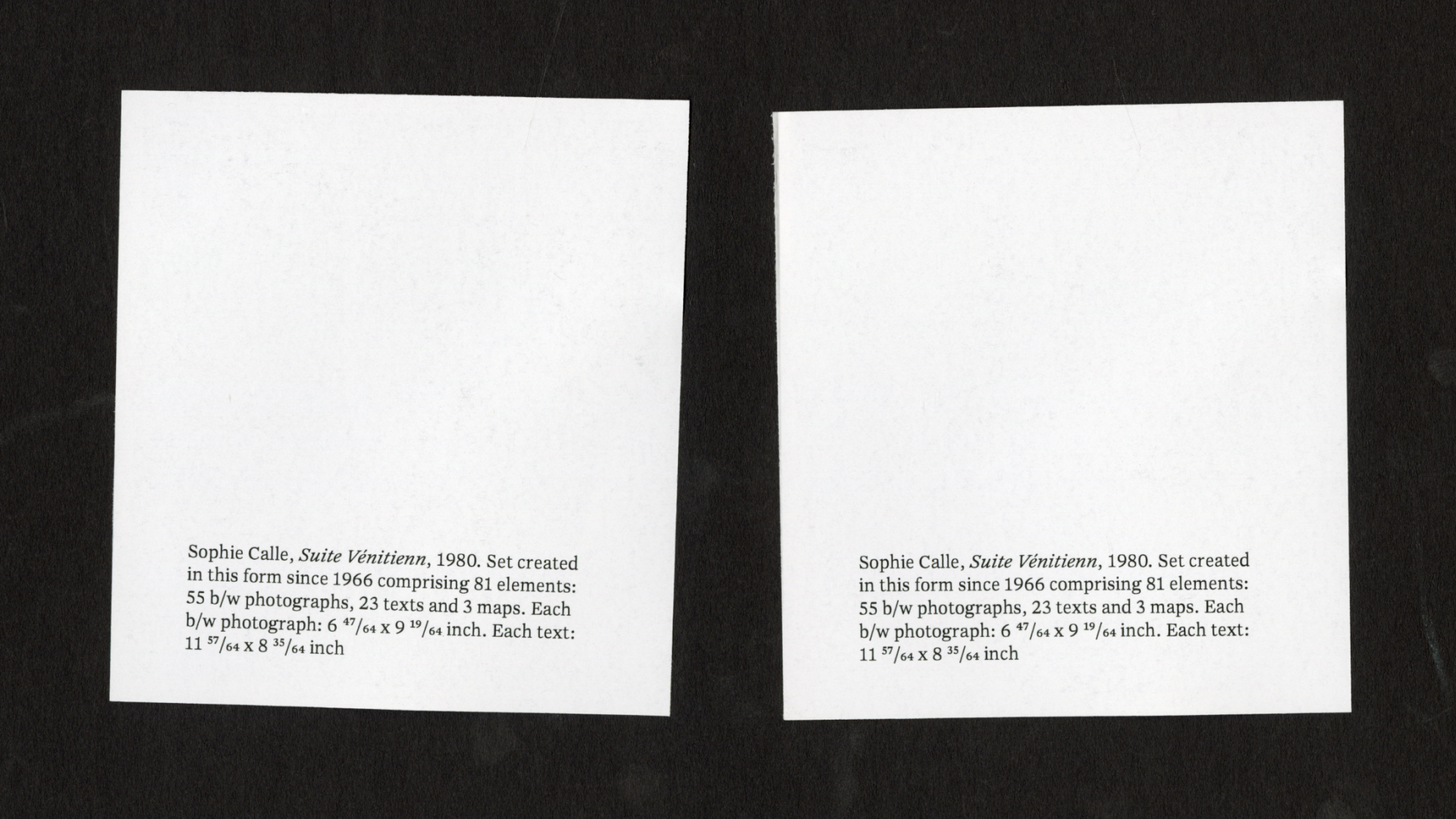
I originally intended to print a great number of documents that Edward Snowden had leaked, and the back of each page would piece together to form a gigantic poster or image of some kind. However, I decided to only print 25 pages of a "Spy Catalog" and the back formed a collage, reminiscent of a wall of layered wheatpasted posters.

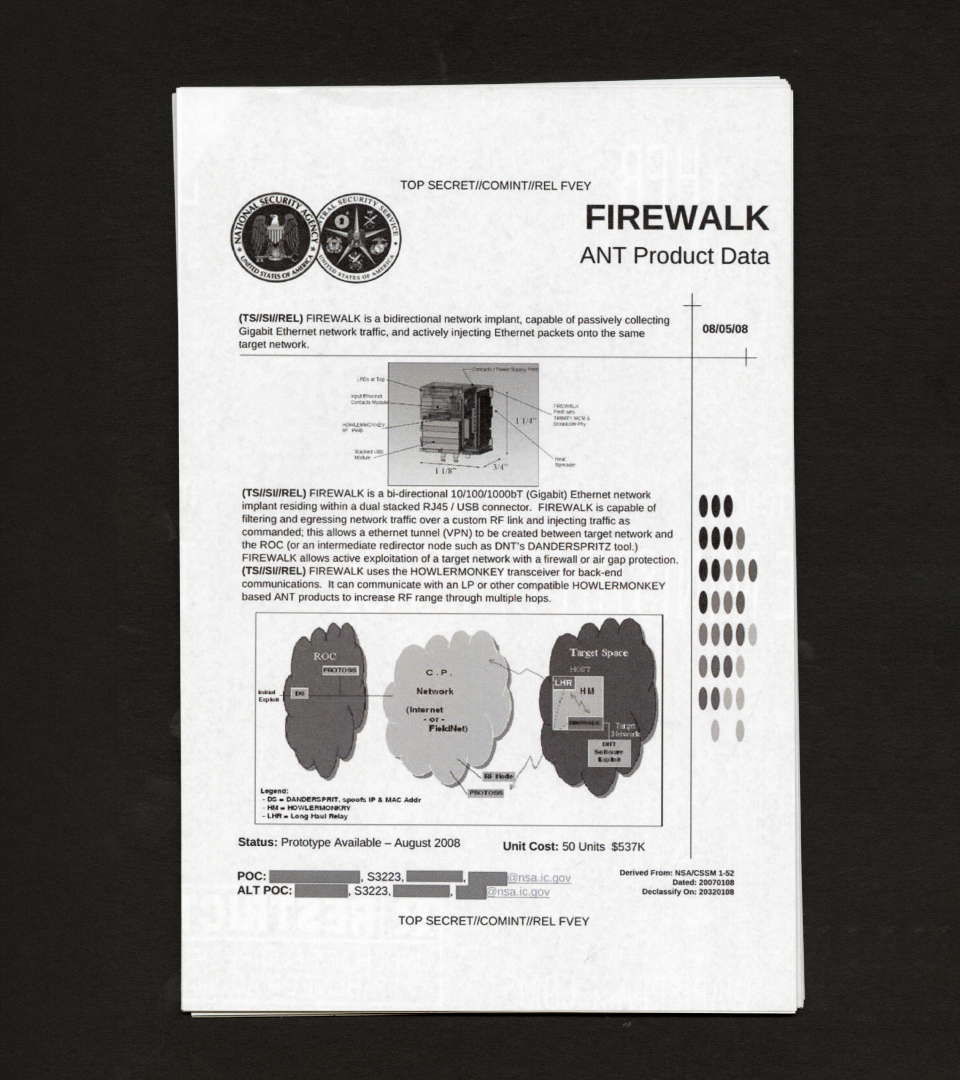
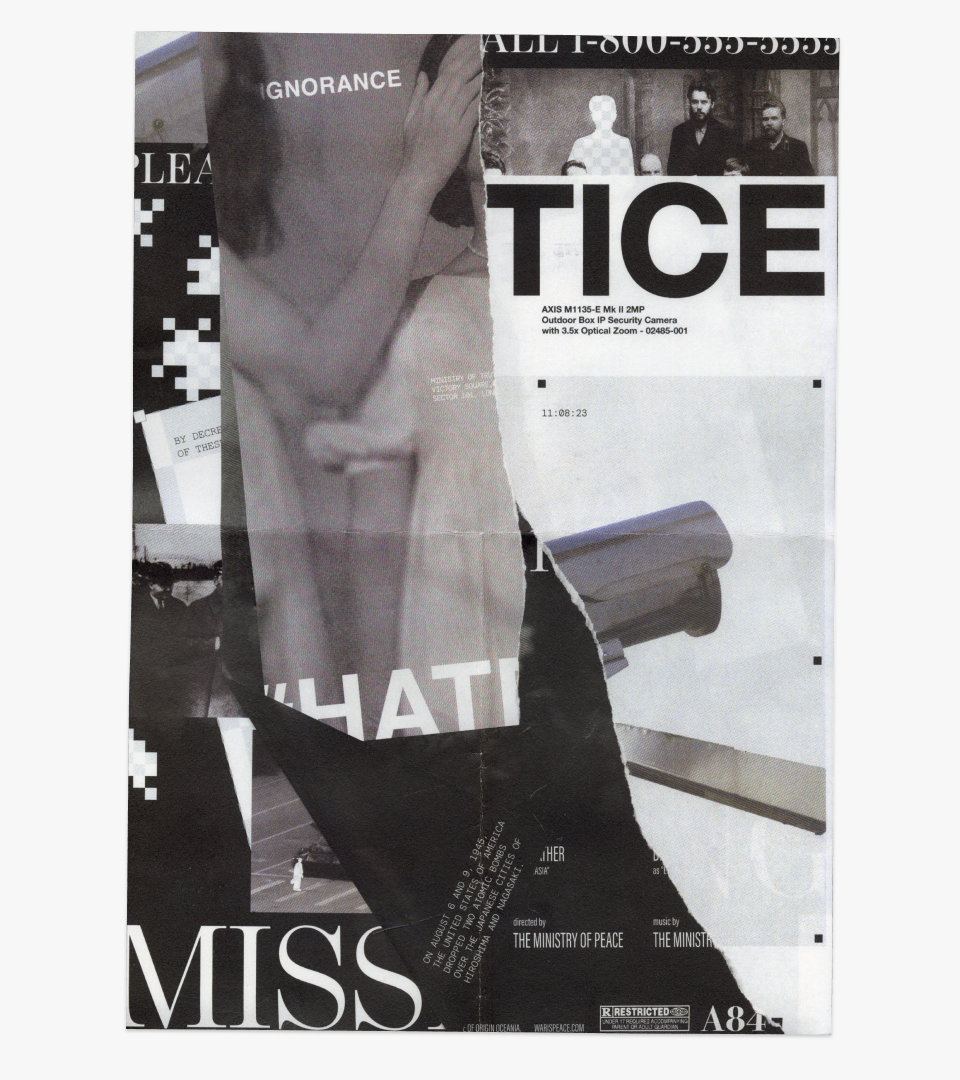
Postal interception is when an entity or an individual takes someone else's mail in order to prevent delivery or to spy on the receiver. For instance, the CIA and FBI intercepted over 200,000 pieces of mail to activist groups.
This plate is "two-sided" in the sense that one side is represented by the transparent envelope (the viewer is spying on this person's mai). The other side is represented by its contents (a warning to the receiver).
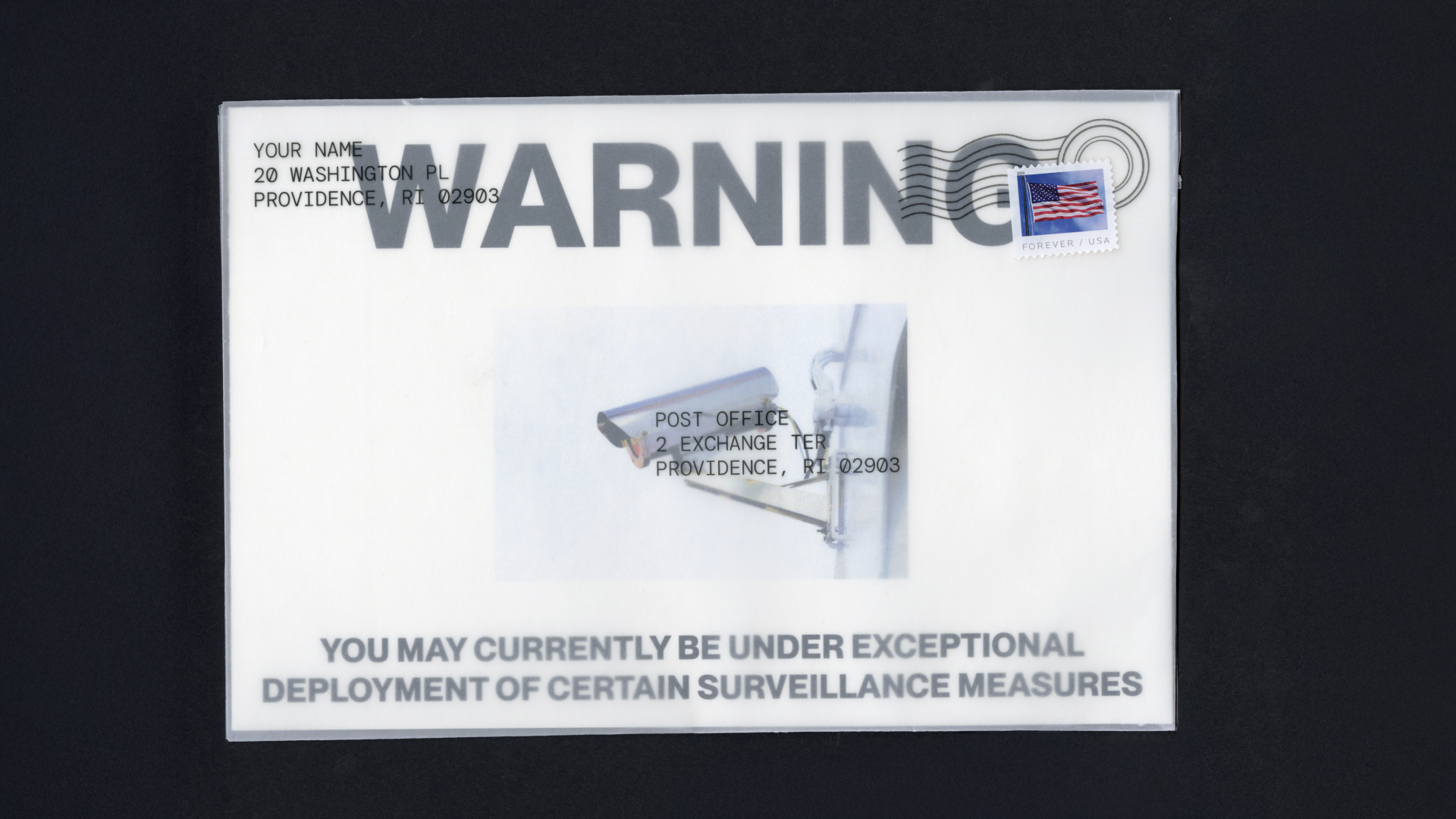
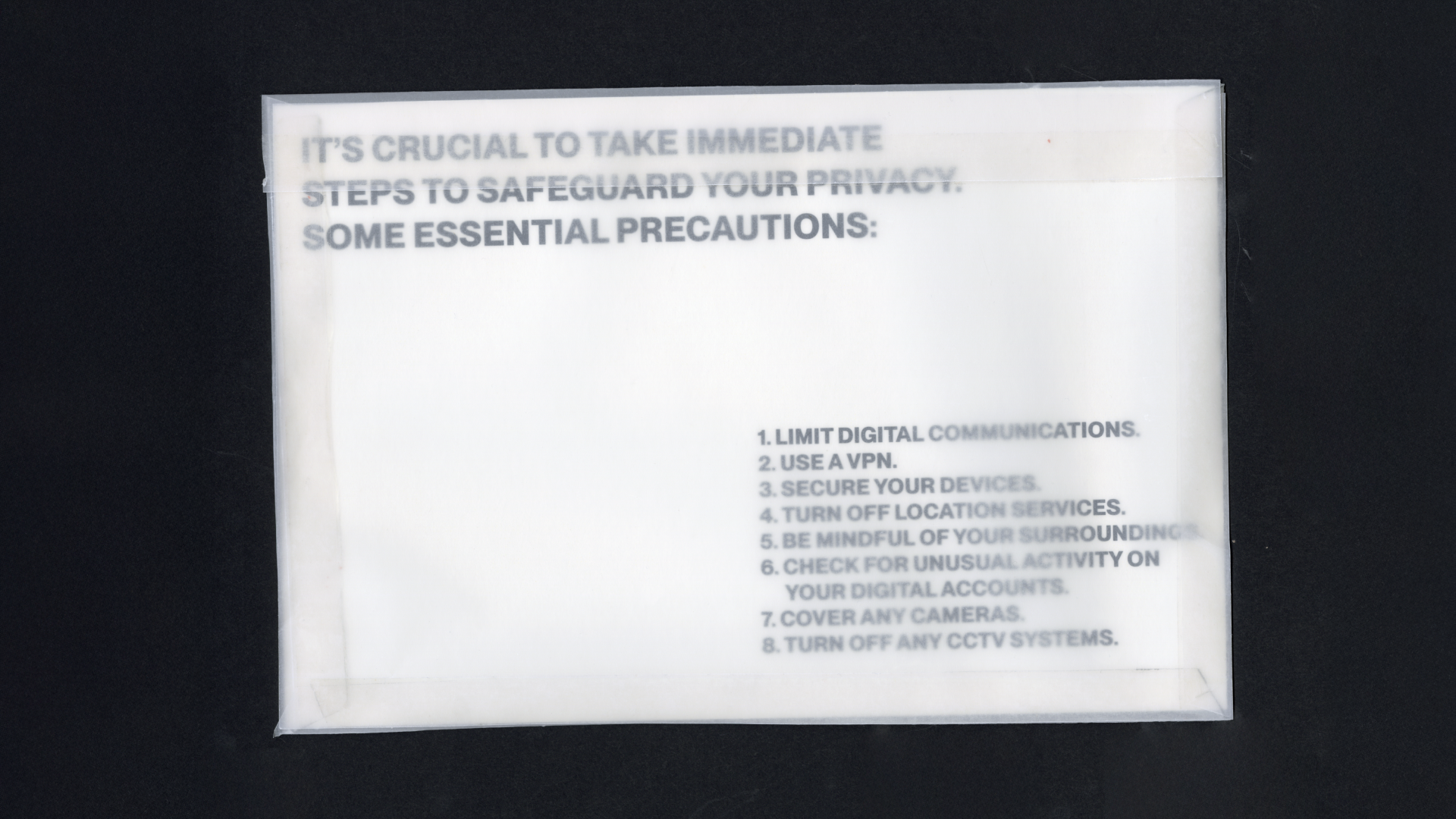
I created two flipbooks using stock video. Both flipbooks show a peephole. In one flipbook, the viewer is watching someone through a peephole. In the second flipbook, the subject looks at the viewer through the peephole. IMAGES COMING SOON.
Earlier in the semester, I wrote a short essay responding to John Berger's Ways of Seeing essay about the ways in which women are viewed and depicted in art. In 1984, the Ministry of Truth produces p*rnographic material for the Proles. However, only women are allowed to work in the P*rnosec department and only the Proles are allowed to look at this material. Even the elite are not allowed to look at it. The material is delivered to the Proles in a sealed packet to prevent Party members from looking at it.
The images printed on one side were taken from John Berger's essay. The other side has a reflective/mirroed paper with text that references the viewer's image in the use of AI.
